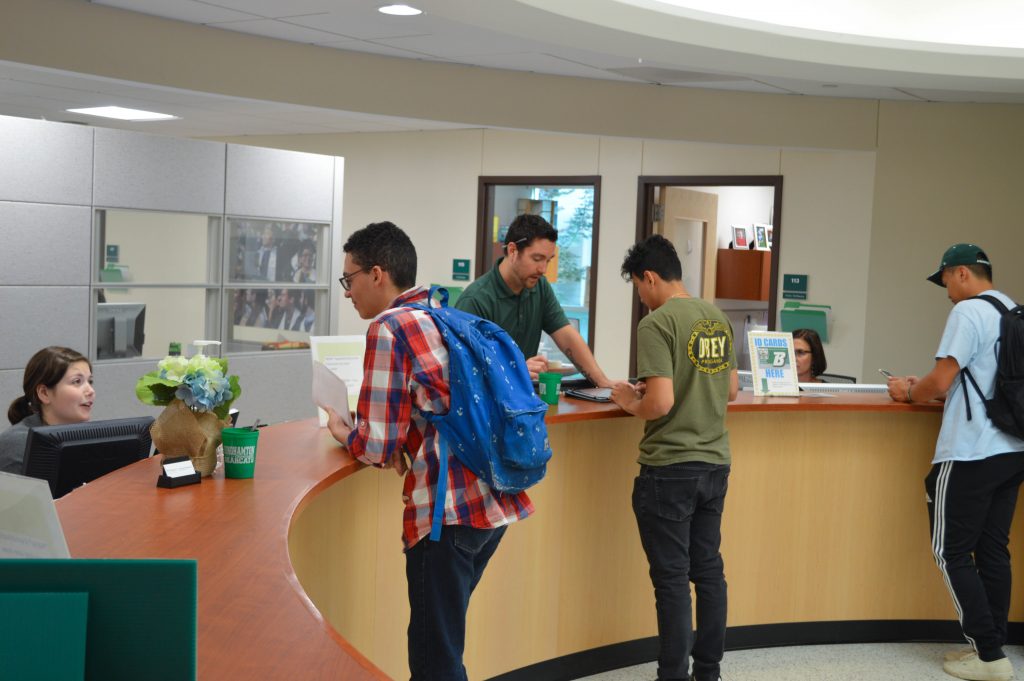
As the fall semester begins, some students at Binghamton University can cross off tuition from their list of expenses, courtesy of Gov. Andrew Cuomo’s Excelsior Scholarship.
According to the New York State Higher Education Services Corporation (HESC), over 75,000 students statewide applied for the scholarship for the 2017-18 academic year. Before the application period began in early June, New York state projected that 23,000 students would qualify and set aside $87 million to fund the initiative. It’s not yet known how many students, including those at BU, have qualified, but SUNY has estimated that students from approximately 80 percent of families making less than $125,000 per year would be aided by 2019.
According to Cuomo, the scholarship will ensure that all families can afford to send their children to SUNY and City University of New York schools.
“A college education has become a necessity, and with the Excelsior Scholarship, all New Yorkers, no matter where they come from or how much money their families make, will have access to a higher education,” Cuomo said in a statement.
The scholarship comes with strict requirements for qualifying applicants. Individuals receiving the scholarship must have lived in New York state for at least one year and have a household income of less than $100,000 ― a cap set to increase to $110,000 in 2018 and $125,000 in 2019. Additionally, those who accept the scholarship are required to live and work in New York state after graduation for the same length of time that they received the scholarship. If an individual moves out of state, the scholarship will be converted into an interest-free 10-year loan.
Additionally, students receiving the scholarship are required to complete 30 credits per year; at BU, 12 credits per semester is considered full-time. Students on campus completing this number of credits would be six short of qualifying at the end of an academic year.
For applicants who are not incoming freshmen, previous credits will be taken into consideration, so students who have not met the 30-credit requirement in prior academic years are ineligible. Angel Tatis, an undeclared sophomore, said that he finds this stipulation unfair.
“It’s not fair because the scholarship wasn’t a thing [last year],” Tatis said. “Now that I know the rules, I can abide by them, but I can’t go back in time and change stuff.”
The scholarship works alongside existing programs such as the New York State Tuition Assistance Program and Federal Student Aid to cover tuition costs. It doesn’t cover costs of room and board, a point that has called its reputation as a truly accessible college program into question by critics. Allison Khin, an undeclared freshman, said that she thought the scholarship was a good start, but that more needs to be done to help students cover costs outside of tuition.
“When you look at the fees for the semester, tuition is only about $4,000, and the most expensive thing is room and board,” Khin said. “Even though it knocks off a couple thousand dollars, the majority is still there.”
Other applicants have voiced concerns that the scholarship’s contract is convoluted and difficult to understand. HESC spokeswoman Anne McCartin Doyle has disputed this idea, stating that the contract encompasses all of the scholarship’s requirements, which is standard for all awards and grants.
Some students said that they are still uncertain that the scholarship will achieve its goal of helping the middle class, especially given the restrictions associated with it. Amelia Guyon, a sophomore majoring in biomedical engineering, said she was still unsure of what she thought of the scholarship.
“I didn’t apply because I knew I wouldn’t qualify, and because I have a STEM scholarship that already covers tuition,” Guyon said. “I feel like if it helps people then it’s fine, but if it’s not helping people it’s a problem.”
The University’s Financial Aid Services office did not respond to repeated requests for comment on the program’s application at BU.


